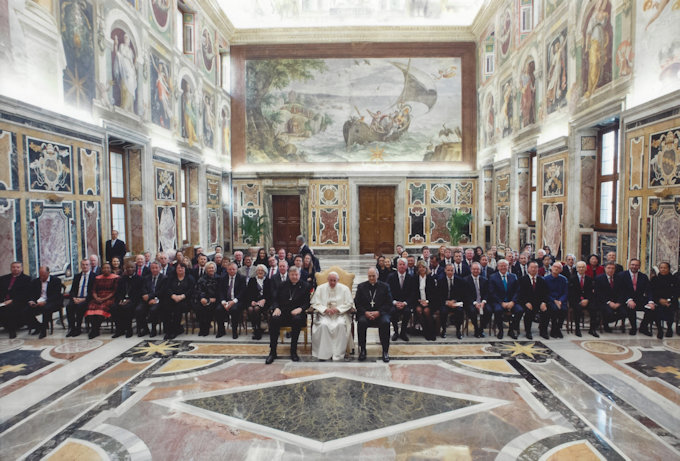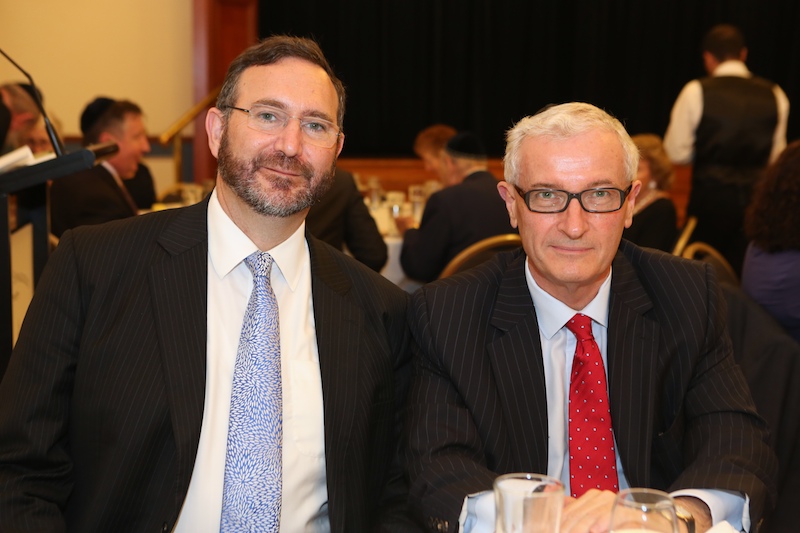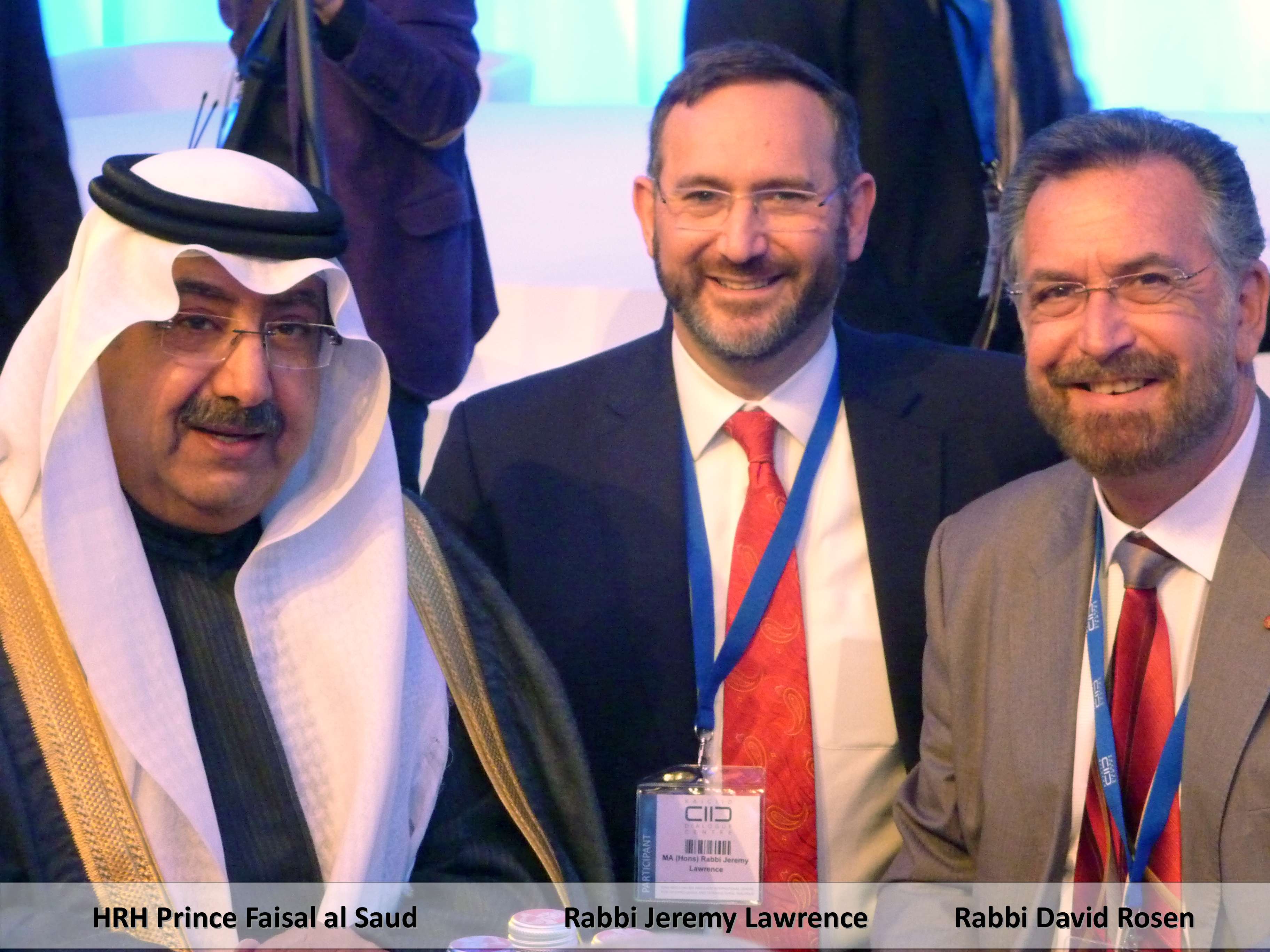Please follow this link to my latest page: www.jeremylawrence.org
This Website is currently being re-designed
Mental Health Awareness Shabbat
This Shabbat has been designated as Mental Health Awareness Shabbat by JAMI, ?the mental health service for our community?.
It is with shame that I remember the considerable bullying by our year-group of a student at school. He had a most scholarly mind but seemed overly sensitive and quirky and would flail and lash out in the face of the slightest provocation. He couldn?t ?grow up? or ?grow out of it?. Teasing someone to the point of breakdown is cruel like knowingly giving someone a food to which they are allergic in order to trigger anaphylactic shock. Perhaps today he would be better diagnosed and medicated; perhaps today he would have been better schooled in coping strategies. But how horrible were some fellow students. He had an illness. Collectively, we lacked any understanding; we lacked compassion; we harboured unwarranted prejudices and we can?t take back the hurt that was inflicted all those years ago.
Memories of those days at school flooded back while I listened to a bright, young autistic man commemorate the 200,000 plus mentally and physically handicapped victims of Nazi genocide.
It is possible that as many as one in four of us will experience some manifestation of mental illness (in the UK in any year), although in very many cases it will not be addressed or acknowledged. The sheer stigma and negative presentation of extreme mental illness creates fear through association. We recoil from the impression that we might be ?feeble minded? or ?weak?; or that we have a moodiness that we can just snap out of, as if one has elected to be sullen and obtuse rather than pull oneself together.
These are not illnesses ?in the mind? but illness within the brain which can be seen on scans and alleviated or corrected. In the face of prejudice, it is hardly surprising that people are shy to admit to depression or anxiety; with the conclusion that they miss out on support and treatment. It is hard enough to admit it to oneself, let alone a friend, a family member and doctor. Often it takes a nudge in the right direction from someone who cares enough and who can read the signs to help the sufferer take the first steps to recovery.
Untreated, unacknowledged? the sufferer can endure wretched spells of self-doubt or a bewildering disconnect with family, peers and environment. Jobs can be lost in a moment, relationships soured, and family life ruined. Some ?escape? the prison of their illness through suicide; never knowing that they were cherished and valued; that their lives could have been bettered through the right help and never comprehending the enduring pain, the endless void and the suffering for their families. Sometimes we can?t find the best ways or best words to show our love because we cannot interpret the cues or respond to the needs of a friend or family member who has a mental illness.
The Talmud (Sanhedrin 73a) explains why doctors are instructed to practice medicine rather than interpret all illness and suffering as Divinely ordained (in which case it would be most unholy to interfere with the will of God!) We are taught ?not to stand by the blood of our neighbour? (Vayikra 19:16) ? we are required to intercede to save a life. We are required, also, to return lost property when we find it (Devarim 22:2). If God desires the restoration of a missing sheep or donkey, how much moreso are we enjoined to restore someone?s sight, hearing or deficient capacity when we have the means. It is a mitzvah to restore someone to being him or herself.
Depression, Schizophrenia, OCD, Bipolar disorders and other mental illnesses leave the sufferer and those around them at a loss. It behoves us who may experience episodes of mental illness to be aware that we are not defective and should not feel shame. We have an illness which should be examined and treated. It behoves us who may encounter suffering in friends and family or in colleagues and associates to be aware; it behoves us to reach out and offer support to a fellow human being. To blind ourselves to suffering; to label and discriminate against people who are unwell is truly shameful. To be aware, understanding and supportive is a mitzvah.
I encourage you to support the resources in our community devoted to education, understanding and care.
Shabbat Shalom
Global Foundation Rome Roundtable
"Where are You?" - Where I was...
I am just back after a fascinating weekend in Italy at the Global Foundation Rome Roundtable.
Amongst the sixty international participants were senior financiers including the Governors of the Banks of England, France and Italy; spiritual leaders such as Cardinal George Pell, Vatican Prefect of the Secretariat for the Economy, The Most Revd Dr. Thabo Makgoba who is the Anglican Archbishop of Cape Town; captains of industry together with many senior politicians, a past Prime Minister, ambassadors and diplomats.
It was truly a privilege to participate in a discussion on the alleviation of suffering in conjunction with people who genuinely care; who have the means and influence to make a difference. The foremost concerns of this Roundtable were to eradicate forced labour from global supply chains; to improve economic empowerment outcomes for women, worldwide and to strengthen global community partnerships across business and faiths for mutual benefit and sustainable global development.
Jewish religious law and moral doctrine covers all areas of commercial activity; competition, product liability, honest representation, investment and partnerships, corporate responsibility, severance payments and pensions. Derived from Biblical verses and interpreted over the centuries, sometimes where Jewish communities have had autonomy and other times where they have depended on the fragile goodwill of their hosts, these laws have evolved with circumstance with a view to core guiding principles. They are realistic and workable. They provide security and prospects of growth for both employee and employer. They advance human dignity through the highest regard for all human life. They look for this generation to plant and resource a better world for the future generations which will follow.
While we correctly prioritise the welfare and security of those closest to home, it is a mitzvah to participate in, even to play a leadership role in and to set an example in bettering Hashem?s world for all of humanity and all God?s Creation.
In his address to us, Pope Francis stated, ?It is necessary above all for each of us, personally, to overcome our indifference to the needs of the poor. We need to learn ?com-passion? for those suffering from persecution, loneliness, forced displacement or separation from their families. We need to learn to ?suffer with? those who lack access to health care, or who endure hunger, cold or heat.
This compassion will enable those with responsibilities in the worlds of finance and politics to use their intelligence and their resources not merely to control and monitor the effects of globalization, but also to help leaders at different political levels ? regional, national and international ? to correct its orientation whenever necessary. For politics and the economy ought to include the exercise of the virtue of prudence.?
In the words of Rabbi Joseph Soloveitchik, ?When God created the world, He provided an opportunity for the work of His hands ? man ? to participate in His creation. The Creator, as it were, impaired reality in order that mortal man could repair its flaws and perfect it.
In the words of Emeritus Chief Rabbi Lord Jonathan Sacks, ?as long as there is hunger, poverty and treatable disease in the world, there is work for us to do. As long as nations fight and men hate and corruption stalks the corridors of power; as long as there is hunger and homelessness, depression and despair, our task is not yet done, and we hear, if we listen carefully enough, the voice of God asking us as he asked the first humans, ?Where are you???
Let us rise to the challenge with the biblical rejoinder ?Hineini - Here I am, ready to play my part.?
Shana Tova from Kinloss
CCJ Discussion with Bishop Anthony Fisher OP
Great Synagogue Law Service

The 2014 Great Synagogue Law Service was an exceptional event. The Service was presided over by NSW Chief Justice Tom Bathurst. The dinner was addressed by Chief Justice James Allsop of the Federal Court.
>>> Rabbi Lawrence's Address to the Law Service <<<


The Jewish calendar has not one but four new years. Next week will be Tu BiShvat, the New Year for Trees. Why should the beginning of the agricultural tax year be considered a festive day? In "Tu BiShvat and the Tree of Life" Rabbi Jeremy Lawrence considers the symbolism and spirit of the season.
KAICIID Dialogue in Vienna

Read my Blog on the KAICIID Summit
Challenges Confronting Modern Orthodoxy
Same Sex Marriage
An article in the recent Australian Jewish News entitled "Orthodox rabbi's dilemma over same-sex marriage" has not fully represented my comments on the recent SBS Insight program and my statement to the AJN.
My remarks clearly distinguished between
- the state's sovereign right to define civil marriage and
- religious marriage which is a religious institution established in the Torah and Halacha exclusively between a man and a woman.
The full transcript of the SBS discussion is available here:
The editing of my statement to the AJN implies a personal rejection of the Torah or a radical re-interpretation of Torah teaching against its clear meaning.
This is not my position and I have requested an immediate correction.
With regards to civil marriage; this is a matter for the Australian Parliament to define and determine. It is my personal opinion that in the context of international standards, our civil law and stated social equalities it is discriminatory to deny the facility of civil marriage to a couple on the basis of gender or sexuality.
